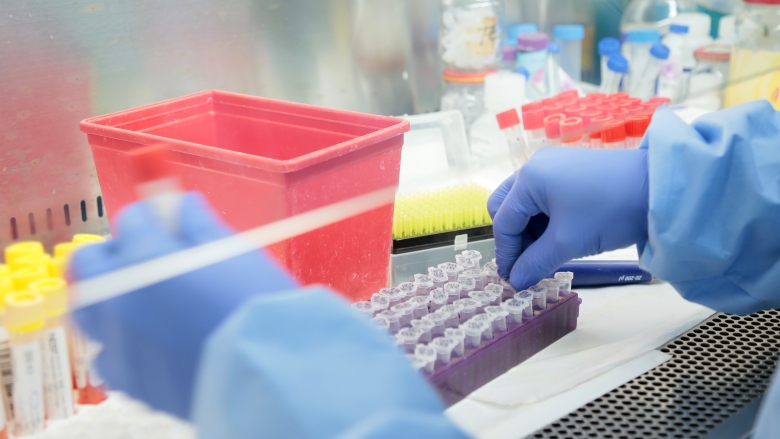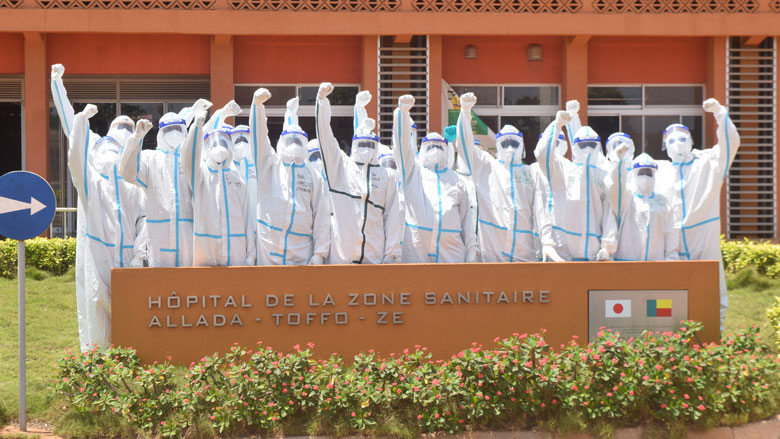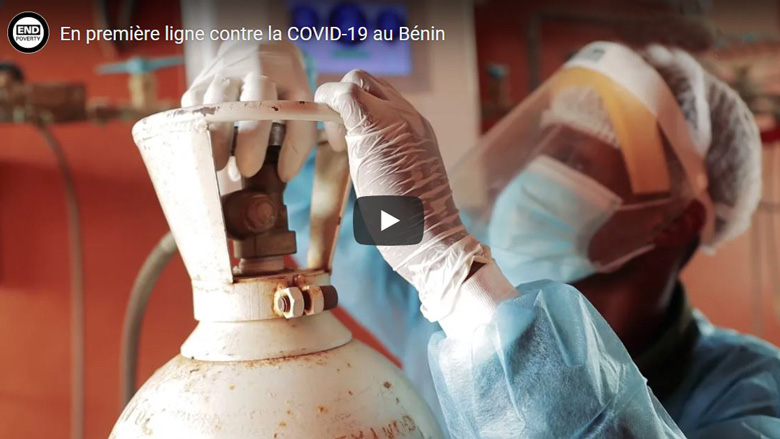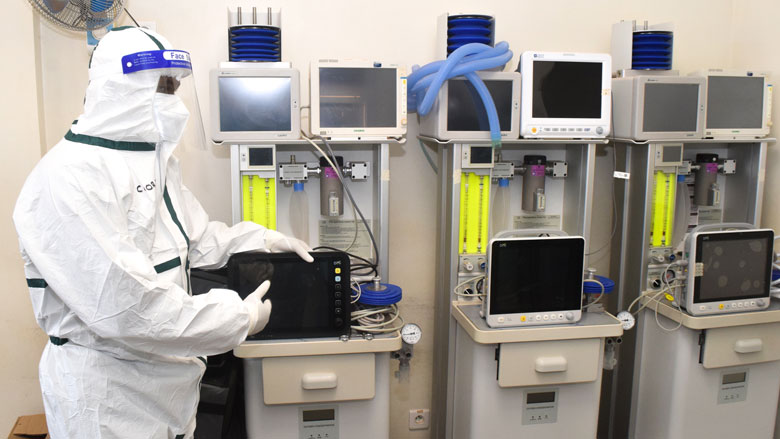Allada, Benin, October 21, 2021 - Wearing a surgical mask, and still weakened by his illness, Martin T steps across the threshold from the red zone housing the COVID-19 patients. He is relieved to enjoy the open air once again and to admire the beautiful scenery, after spending around 10 days in the intensive care unit of the Allada Epidemic Treatment Center, located 50 km north of Cotonou. The two bags containing his belongings are disinfected one last time. Four health care workers, including the coordinator of the center, stand by his side and remind him yet again of the need to adhere to social distancing measures. This is the last step that Martin submits to, before calling his girlfriend to make arrangements for his return to Cotonou.
“It was worse than a nightmare. It was extremely tough, but I take my hat off to the medical team that provided me with such quality health care.” In his sixties, Martin is convinced that his recovery was due to the swift action and attentiveness of the doctors, as well as to the quality of the treatment that he received.

Light at the end of the tunnel
As a national referral center, the Allada Epidemic Treatment Center plays a central role in the response strategy of the government of Benin. Up to October 15, 2021, over 1,500 patients had been hospitalized there, including 900 serious cases admitted to the intensive care and resuscitation units. These figures do not include the hundreds of patients who were isolated, treated, and monitored at home.
Each case is different and the testimonies are moving. After two weeks of care, Sheik G., imam of a mosque in a suburb north of Cotonou, emerged unscathed and has started preaching again. “The coronavirus is real. But its consequences are not inevitable. Thanks to Allah and to the doctors at Allada, I am healthy again,” he said.
Ginette Z., a businesswoman who recovered from the virus, believes that her life was saved thanks to her early admission to the center.
Each recovery is a cause for celebration for the health care personnel who themselves have not been spared the ravages of the pandemic. “When my test results came in, I was in shock,” admitted Isidor Lokonon, Head of Nursing Care at the Emergency Medical Assistance Center (Samu-Benin). “But I quickly calmed down, because I was convinced that Benin was well equipped to respond to COVID-19 and that I would come through just fine.”



